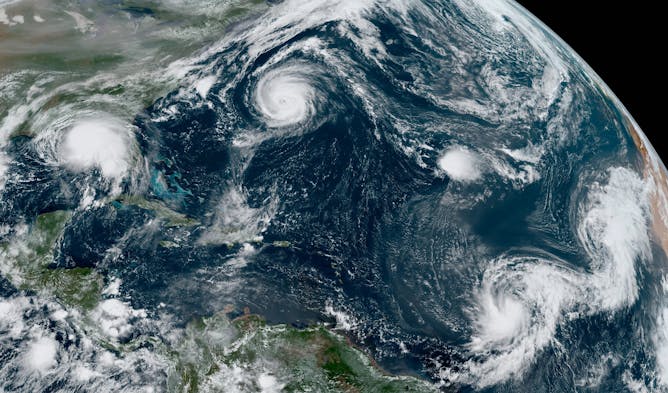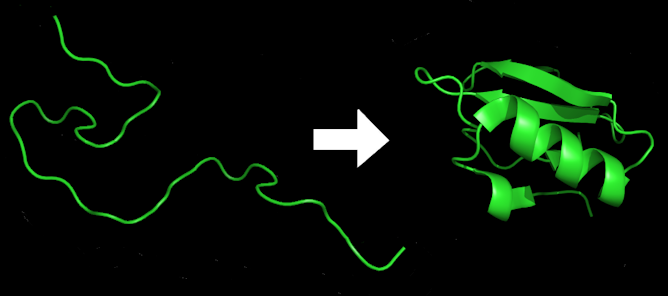|
With the pandemic and politics dominating the news this summer and fall, it could be hard to keep track of the many hurricanes that formed – unless, of course, you were directly affected. You probably heard that this year broke the record for the most named storms, but you may not know there were new highs in the number of rapidly intensifying hurricanes as well. Two atmospheric scientists run through the latest research to recap this hurricane
season, which ended Monday, and address the perennial question: What role does climate change play?
Research at the intersection of computation and biology had one of its most exciting moments this week when Google-owned DeepMind trounced the competition in an annual contest to predict a protein structure from a string of amino acids. A computational chemist unpacks why this is such a big deal – and what protein folding is anyway – and concludes by asking whether this AI software will make his job redundant.
As the pandemic continues to spread across the country, a biostatistician and epidemiologist explain why the growing availability of rapid tests for the coronavirus is still not enough to reverse the current course.
One final note in this week’s research and science newsletter: We are very interested to hear what you want to know about the pandemic. Are there questions you’d like an expert to address? Please respond to this email with your thoughts on the pandemic or other any other topic.
|

Hurricanes Sally and Paulette, Tropical Depression Rene, and Tropical Storms Teddy and Vicky were all active on Sept. 14, 2020.
NOAA
James H. Ruppert Jr., Penn State; Allison Wing, Florida State University
There were so many tropical storms in 2020, forecasters exhausted the list of names and started using Greek letters. And that's only one reason 2020 was extreme.
|

A simple chain of amino acids folds into a complex three-dimensional structure.
Marc Zimmer, Connecticut College
Scientists in an artificial intelligence lab have made a breakthrough in solving the problem of how proteins fold into their final three-dimensional shape. The work could speed up creation of drugs.
|

These psychological tendencies explain why an onslaught of facts won’t necessarily change anyone’s mind.
Francesco Carta fotografo/Moment via Getty Images
Jay Maddock, Texas A&M University
Cognitive shortcuts help you efficiently move through a complicated world. But they come with an unwelcome side effect: Facts aren't necessarily enough to change your mind.
|